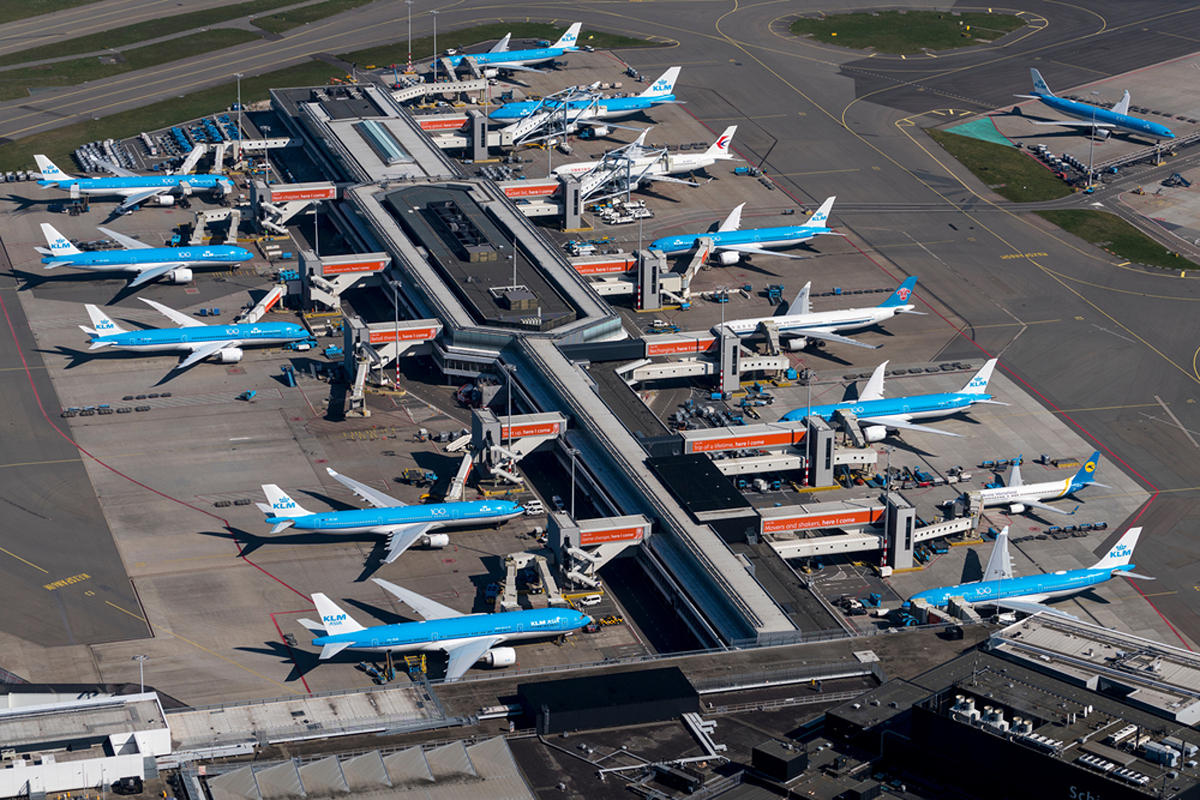It has been revealed that one of Europe’s leading aviation hubs, Amsterdam’s Schiphol Airport (AMS), is to increase the fees it charges to airlines by a total of 37% over three years, as a countermeasure to the impact of high inflation and interest rates. On October 31, 2024, the airport authority announced that will airlines pay an average of 15 euros ($16.31) more for a local departing passenger in 2027 than they do at present.
Charges at the airport will increase by 41% in 2025, 5% in 2026, and then decrease by 7.5% in 2027, giving an overall increase of 37% increase over the period. The increased revenue earned by the higher fees will go towards a €6 billion investment fund to be generated by 2029, in what the airport has said will be the most substantial investment plan in its history.
According to the airport’s statement, “With these charges, Schiphol is making the necessary investments in good infrastructure, better services for passengers and airlines, and improved working conditions possible”. The airport also claims that it will use the fees to reduce noise nuisance and night flights would be subject to additional charges.
“The charges for quieter aircraft are going to be less expensive, while older, noisier planes are going to cost airlines more. There is a category of aircraft that make so much noise that they will be banned as of 2025,” the statement added.

However, despite the positive mood music coming from the airport about its plans, KLM, the airport’s largest customer is unhappy with the fee changes being imposed and has issued an angry response aimed at the airport’s operators.
The airline claims that Schiphol will become the second most expensive airport in Europe with the fee increase. It also points out that the increase comes on top of a 40% tariff increase over the past three years. “This has major implications for both travelers and the aviation sector, as the costs of setbacks at Schiphol are passed on to airlines, higher ticket prices for travelers are inevitable,” KLM says.
“No other airport in Europe opts for such an increase, making Schiphol significantly more expensive in the coming years compared to other European hubs like Paris-Charles de Gaulle (CDG) and Copenhagen (CPH). Meanwhile, Schiphol will be busy for years, building and renovating to provide the quality that travelers and airlines can expect,” the airline adds.
KLM’s statement continues: “Schiphol shifts additional costs of setbacks and budget overruns largely to the traveler. More expensive tickets are inevitable if you increase airport charges so drastically. This is unreasonable and unwise. Unreasonable, because Schiphol is placing the costs of all setbacks and Covid-19 entirely on the airlines. Unwise, because in doing so, the airport undermines its competitive position as an international hub. This poses risks for the hub function, the connectivity of the Netherlands, and our economy.”
“KLM agrees with Schiphol that improving the airport and better service for travelers are urgently needed,” added Marjan Rintel, the CEO of KLM. “The state of maintenance of buildings and workplaces does not meet the needs of travelers and employees at Schiphol. KLM also supports efforts to reduce noise pollution and the use of tariff differentiation to encourage airlines to deploy quieter aircraft.”
Earlier this year, the Dutch government abandoned its plan to impose capacity cuts at Amsterdam’s Schiphol Airport (AMS) for the summer of 2024 following a backlash from US and European authorities. The plan to cap the number of flights operating into and out of Schiphol, one of Europe’s busiest hubs in 2024, had been primarily driven by the desire to cut noise and air pollution.
Limiting the number of flights over the summer season to just around 450,000 movements had been welcomed by environmentalists and local residents alike, who argue that the move was necessary to reduce carbon dioxide and nitrogen emissions, as well as noise pollution. The proposed cap would have seen movements drop to 10% below the number handled by the airport in 2019.

